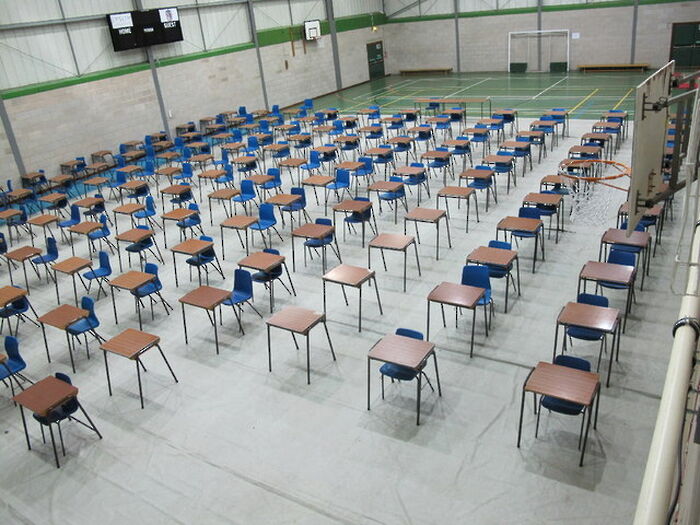Inequalities between our colleges are being collectively ignored
We aren’t doing enough as a university to address the unequal resources and experiences between colleges

CUSU election season is almost upon us. Every Lent Term, we hear detailed proposals to tackle some of our university’s most pressing problems: mental health provision, workload, rents, and intermission, to name but a few. However, I worry that once again Cambridge students will miss one of the most potent and underlying sources for many of these issues: college inequality.
As JCR President of Emmanuel, I was lucky enough to work with a college administration that cared about welfare. My counterparts in other colleges were routinely surprised that we had over £3000 to spend a year on welfare programs. Bouncy castles don’t come cheap.
“The problem is not that the system is failing, but that there is no system, so to speak”
Likewise, Sidney Sussex has recently started art therapy and yoga sessions. While perhaps somewhat cosmetic, colleges that care do inject resources into programs to alleviate stress and strain. While weekly yoga sessions have become de rigueur at Emmanuel, other students view these ‘perks’ as unrivalled luxuries. Furthermore, while for £160 at Girton you can get a room a 15-minute cycle away from the city centre, at John’s, a similar price gets you a three- to four-room set with a balcony.
Obviously, this is part of the Cambridge ‘deal’. The upside of the College system is that you get a ready-made community and far more personalised access to your professors. The flip side is that the provision of services can be decidedly uneven, unfairly so. There is no good justification for why some Colleges have far higher intermission rates than others, or why rents at different colleges are so phenomenally different depending on where you happen to have applied or been pooled.
Cambridge decentralization could be a potent force for improved standards if it worked properly. Ideally, innovative colleges would be emulated and successful programs would be replicated. Conversely, colleges where clear deficiencies were discovered would also be pointed out, and corrective action taken. If nothing else, Senior Tutors and Bursars tend to get embarrassed when they see a college perform better than them.
Of course, that’s why it seems that colleges work overtime to make sure such comparisons rarely occur. As a JCR President, the data we had to compare was invariably flimsy and anecdotal, if there was a ‘database’ at all. While numerous chats with other JCR Presidents helped, our submissions to College were neither as robust or as wide-ranging as they could have been. We simply lacked the information.
This, I think, is the key point missing from current discussions about the variety of issues that face students. While some point fingers at systemic problems, this gets the University backwards. The problem is not that the system is failing, but that there is no system, so to speak. There is no way for students to hold colleges accountable to each other, and by extension, very little leverage to effect change.
Ironically, this sorry state of affairs is best demonstrated by the plethora of investigations Varsity drops every term about inequalities that go on within Cambridge’s walls. If we actually held our colleges accountable, it would not be a shock to us that some seem to repeatedly fail to accommodate intermissions or increase provision of mental health services. Instead, every month around 1200 words are printed in Varsity, a few column inches are wasted by aspiring comment writers, and we then go back to our overworked lives.
If we are going to tackle the root problem of inequality between colleges, we will first need solidarity between students. We need to think hard about what structures we can put in place to encourage information-sharing, and what more CUSU can do to bring all this information together. We are going to have to build a system where none existed. A heavy task, but a crucial one
 News / Judge Business School advisor resigns over Epstein and Andrew links18 February 2026
News / Judge Business School advisor resigns over Epstein and Andrew links18 February 2026 News / Gov grants £36m to Cambridge supercomputer17 February 2026
News / Gov grants £36m to Cambridge supercomputer17 February 2026 News / Hundreds of Cambridge academics demand vote on fate of vet course20 February 2026
News / Hundreds of Cambridge academics demand vote on fate of vet course20 February 2026 News / CUCA members attend Reform rally in London20 February 2026
News / CUCA members attend Reform rally in London20 February 2026 News / Union speakers condemn ‘hateful’ Katie Hopkins speech14 February 2026
News / Union speakers condemn ‘hateful’ Katie Hopkins speech14 February 2026










